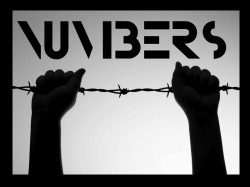On Jan. 30, at a ceremony at Yad Vashem in Jerusalem, the names of Sabina Perzyna, her husband Jan Dziadosz and their son Aleksandr were added to the Wall of Honour in the Garden of the Righteous Among the Nations. The accolade was richly deserved: during the Second World War, the Dziadosz family employed a local Jew on their farm in Poland’s Lublin district. As the situation became increasingly dangerous, Sabina convinced the young man, a friend of Aleksandr, to hide from the Nazis in the attic of the cowshed. Sabina and Jan also concealed another Jewish friend during the war. (Both Jews would eventually join the partisans in the forest and survive the war.)
The Dziadosz family joins more than 6,700 Polish men, women and children previously honoured as Righteous Among the Nations. It is an inspiring list, filled with stories of extraordinary honour and true sacrifice in the face of evil: Matylda Getter, the Catholic nun who rescued as many as 550 Jewish children from the Warsaw Ghetto; Jan Karski, the resistance fighter who first alerted U.S. President Franklin Roosevelt to the Holocaust unfolding across the ocean; Maria Kotarba, the “Angel of Auschwitz,” who smuggled food, medicine and messages into the death camp; Janusz Korczak, the orphanage director who refused to abandon his charges and ultimately died at Treblinka.
Of the approximately 26,500 names immortalized at Yad Vashem as Righteous Among the Nations, more than 25 per cent are Polish. This exceptional record is worth celebrating time and time again, and the Jewish world has led the way in recognizing Poland’s brightest stars in the darkest of times. But when it comes to Poland’s history during the Holocaust, these examples of valour are countered by a comprehensive record of collaboration with the Nazis, savage anti-Semitism and unconscionable apathy. Now, the Polish government is aiming to whitewash that undeniable fact with a new law that bans, under the threat of fine or imprisonment, any accusations of Polish complicity with Nazi Germany. The so-called “Holocaust Bill,” which also outlaws the term “Polish death camp,” has already passed votes in the lower house of Poland’s Parliament and its Senate. President Andrzej Duda, whose signature the bill requires to become law, has indicated his support.
In this week’s CJN, (p. 21) Eli Rubenstein explains that “the motive for the government’s proposed legislation stems, in part, from a feeling of frustration – not without basis – that Poland is too often unfairly labelled as one of the main protagonists of the Holocaust.” As for “Polish death camps,” Yad Vashem has acknowledged that the term is a “historical misrepresentation” (even if it is geographically factual). But if the Holocaust Bill is meant to right a perceived wrong, it is completely unnecessary: the historical record clearly indicates that the Nazis devised and steered the Shoah, and that the Poles suffered mightily, too. No one denies this.
This leaves the Jewish world to wonder what’s really behind the Polish government’s Holocaust Bill. Poland’s history during the Second World War is complicated, to say the least. The Polish people should confront that record head-on – just as the 6,700 righteous among them did. It’s the only way forward.
